42nd International Human Science Research Conference
Theme: Grasping Lived Experiences – What, Why, and How
Join us for the 42nd International Human Science Research Conference, where we will explore the rich significance embedded within the lived experiences of individuals. How do we understand the deeper meanings of people's subjective experiences? What scientific value do these experiences hold, and how can we best explore them through phenomenological and hermeneutic approaches?
📅 Dates: August 11 -15, 2025
📍 Location: Roskilde, Denmark
Grasping lived experiences involves the attempt to grasp at the deeper meaning embedded within the personal, subjective experiences of individuals as they navigate their world. These experiences are rich with significance, offering insight into how people perceive, interpret, and interact with their surroundings. However, questions arise: What exactly are these lived experiences, what scientific value do they hold, and how can they be explored in a way that aligns with phenomenological and hermeneutic ontology?
Grasping at meaning, in this context, becomes an essential task for those studying lived experiences, as it requires engaging with the nuanced layers of human perception and interpretation. This effort is at the heart of a tradition that values deep reflection over quick conclusions, even in a world increasingly demanding immediate answers and concrete actions.
The 42nd International Human Science Research Conference focuses on these very questions, seeking to bridge the gap between ancient philosophical wisdom and the future of human science. By addressing how we grasp and interpret lived experiences, the conference emphasizes the importance of maintaining a connection between human experiences and the evolving challenges of tomorrow’s scientific inquiry.
We invite researchers to submit abstracts that delve into topics such as:
- Methodological reflections regarding the use of lived experience descriptions in research
- Ethical issues regarding lived experiences in research
- Lived experiences and power issues – whose voices are heard
- Examples on studies using lived experiences as empirical departure
- How to give voice to vulnerable people
- The use of narratives in research
- Aesthetic dimensions of lived experiences – Investigating the interplay between art, aesthetics, and the lived experiences of individuals
- Other topics
We look forward to seeing you there!
-
Programme
Monday, 11 August
1:00 PM: Registration (Foyer)
2:00 PM – 5:00 PM: Pre-conference by Finn Thorbjørn Hansen (Auditorium A0.63)
5:30 PM: Get-together reception (Foyer)Tuesday, 12 August
8:00 AM: Registration (Foyer)
9:00 AM: Welcome by the conference committee (Auditorium A0.63)
Welcome address by Daniel Schwartz Bojsen, Director of Health, Social, and Engineering, University College Absalon
9:30 AM: Keynote by Pia Dreyer
Phenomenological Hermeneutics and the Human Sciences Underscore the Significance of Narratives: Acknowledging that Human Lives Deserve to Be Told (Auditorium A0.63)
10:30 AM: Coffee break (Foyer)
11:00 AM: Parallel sessions - download detailed programme
12:30 PM: Lunch (Canteen)
1:30 PM – 3:45 PM: Parallel sessions - download detailed programme
Coffee/tea/cake will be available from the buffet between 1:15 PM – 3:15 PMWednesday, 13 August
9:00 AM: Keynote by Alfred Sköld
Existential Perspectives on Love (Auditorium A0.63)
10:00 AM: Coffee break (Foyer)
10:30 AM: Parallel sessions - download detailed programme
12:00 PM: Lunch (Canteen)
1:00 PM: Parallel sessions
3:15 PM – 4:30 PM: Coffee/tea/cake and poster sessionThursday, 14 August
9:00 AM: Keynote by Esben Bala Skouboe and Marie Koldkjær Højlund
Existential Spaces for Birth & Death (Auditorium A0.63)
10:00 AM: Coffee break (Foyer)
10:30 AM: Parallel sessions - download detailed programme
12:00 PM: Lunch (Canteen)
1:00 PM: Parallel sessions - download detailed programme
2:30 PM: Coffee break (Foyer)
3:00 PM: Business meeting (Auditorium A0.63)
5:00 PM: Bus departure from University College Absalon (Outside entrance A)
6:00 PM : Gala Dinner (Herslev Bryghus)
9:00 PM: Bus from Herslev Bryghus to Roskilde CFriday, 15 August
9:00 AM: Keynote by Helena Dahlberg
Understanding and Moving in the Flesh – A Search for the Junction Between Theory and Praxis (Auditorium A0.63)
10:00 AM: Coffee break (Foyer)
10:30 AM: Parallel sessions - download detailed programme
12:00 PM: Farewell session (Sandwich to go, Auditorium A0.63) -
Abstract Book
You can download the official Abstract Book below. It includes abstracts from keynotes, workshops and oral presentations.
-
Places to stay in Roskilde
- Comwell Roskilde
You can reserve this hotel along with your conference registration. - Scandic Hotels Roskilde Park
- Four Points Flex Roskilde
- Danhostel Roskilde
You can also find some B&Bs and camp sites.
- Comwell Roskilde
-
Attractions in the region of Roskilde
There are many interesting places in the region of Roskilde and in Copenhagen, the Danish capital. A few suggestions are mentioned below:
- Viking Ship Museum: Discover how the Vikings shaped history.
- Roskilde Cathedral: A UNESCO World Heritage Site from the 12th century
- Lejre Lands of Legends (Sagnlandet Lejre)Experience life from the Stone Age to the 1800s.
- Explore more in Fjordlandet: Visit Fjordlandet
- Touring Copenhagen: Visit Copenhagen
-
Getting to University College Absalon, Roskilde
From Copenhagen Airport (CPH)
Copenhagen Airport (CPH) is Denmark's primary international airport, offering connections to destinations worldwide. When you arrive in Copenhagen, Denmark, you can continue your travel by taxi or public transportation. If you want to take a taxi, you can find them both at the airport and at Copenhagen Central Station.- By Train:
From Copenhagen Airport, you can take a direct train to Roskilde Station. Trains run frequently, and the journey takes approximately 40 minutes. From Roskilde Station, you can take a taxi or a bus to University College Absalon, located about 10 minutes away. - By Taxi:
Taxis are readily available outside the airport. A taxi ride to University College Absalon in Roskilde takes approximately 40 minutes and costs around 700-900 DKK (approximately 95-120 EUR), depending on traffic. - By Car:
If you rent a car at the airport, it takes about 40 minutes to drive to Roskilde via the E20 motorway.
If you want to use public transportation, you can purchase tickets through the DOT Tickets app (iPhone and Android), or by using the ticket machines at train and metro stations and at the airport. The tickets work for both trains, metros, and buses.
Prices
• The price by public transportation from Copenhagen Airport to Roskilde Station is around 66 DKK (≈ 9 Euros).
• The price by public transportation from Copenhagen Central Station to Roskilde Station is around 60 DKK (≈ 8 Euros).
• The price by public transportation from Roskilde Station to Trekroner Station is 24 DKK (≈ 3.25 Euros).If you plan to travel multiple times, a City Pass is also an option, but in most cases, single-trip tickets will be cheaper. If you want to be able to travel to Roskilde with your City Pass, you must buy the Large City Pass. The price ranges from 180 DKK (24 hours) to 680 DKK (120 hours), ≈ 24 to 91 Euros.
Example
If you wish to travel by public transport:
• From the airport to your hotel in Roskilde
• From your hotel to University College Absalon and return each day
• One trip to Copenhagen for sightseeing
• From University College Absalon to the airportSingle-trip tickets are the cheapest way to go.
Link: The official tourist guide to public transportFrom Copenhagen Central Station (København H)
Roskilde Station is one of Denmark's major train stations and is served by both regional and intercity trains. From Copenhagen Central Station (København H), the journey to Roskilde takes approximately 20-25 minutes by regional train. University College Absalon is located just outside Roskilde city and can be reached by both train and buses, or a 50-minute walk. The nearest train station is Trekroner Station.
From Roskilde Station, you can take:
• Bus: Bus lines 202A and 220 towards Campus Roskilde stop close to University College Absalon.
• Taxi: Taxis are available outside the station, and the ride to University College Absalon takes about 10 minutes and costs approximately 100-150 DKK (around 14-20 EUR).Travel by Car from Copenhagen
Address: University College Absalon, Trekroner Forskerpark 4, 4000 Roskilde, Denmark- From Copenhagen: Drive on the E20 motorway towards Roskilde and take exit 10 towards Trekroner. The journey takes approximately 30 minutes
- From Odense/Funen: Take the E20 motorway towards Copenhagen and continue towards Roskilde. The journey takes approximately 1 hour and 30 minutes.
- Parking: Free parking is available at University College Absalon.
We look forward to welcoming you to the conference and are happy to assist with any further questions about travel or accommodation. Safe travels!
- By Train:
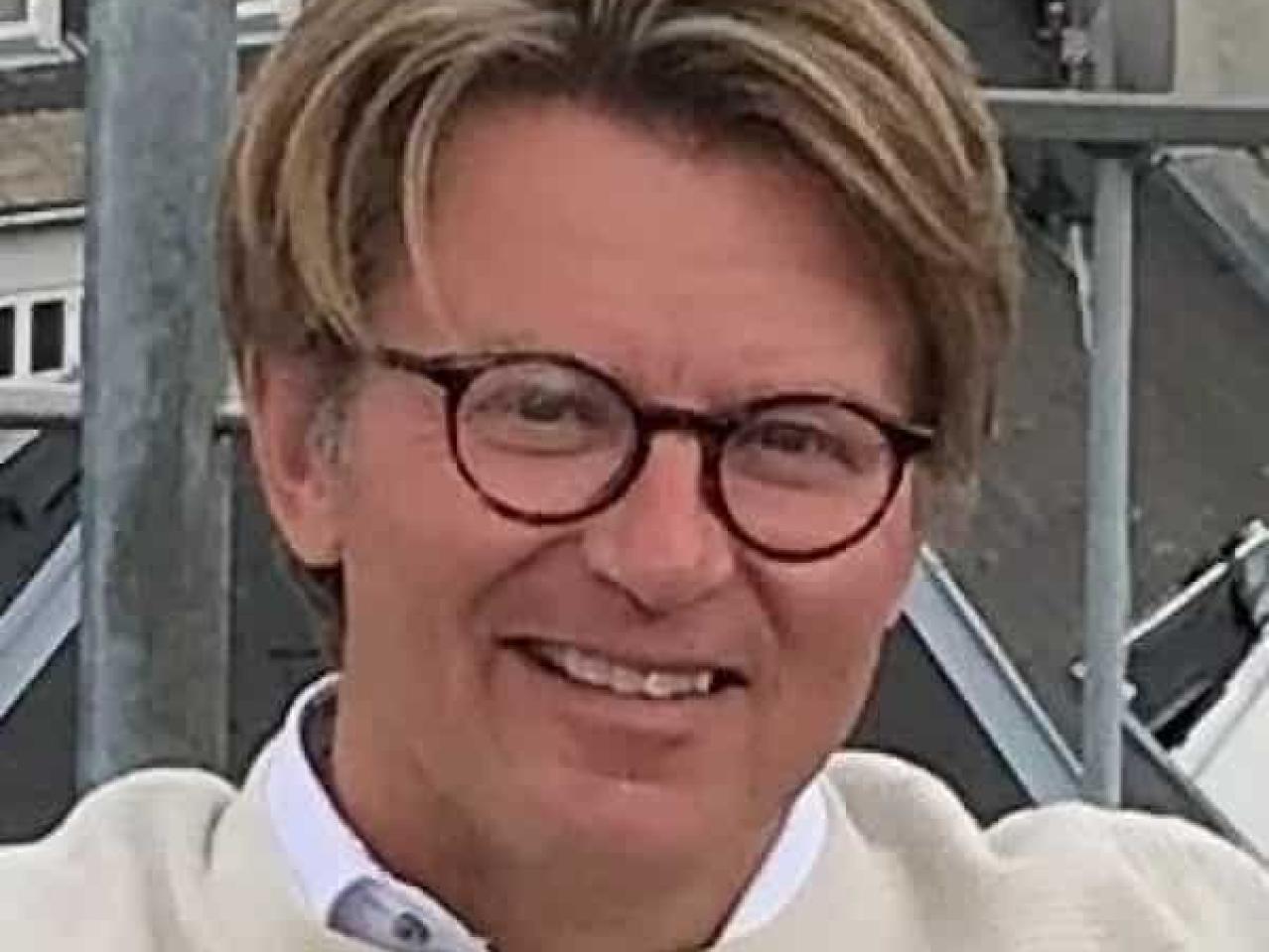
Pre-Conference Workshop
Monday, August 11, 2025 2:00pm-5:00pm
Finn Thorbjørn Hansen
-
Read more
Finn Thorbjørn Hansen is Professor of Applied Philosophy at Aalborg University, Denmark, with a Ph.D. in Philosophy of Education. He co-directs the research group TEN (Time, Existence & Nature connectedness) and founded the Danish Society of Philosophical Practice. Hansen's research focuses on dialogical philosophy, existential phenomenology, and philosophical hermeneutics in practice research and professional contexts. He has published widely in these areas.
Dr. Hansen is internationally known as the creator of 'The Wonder Lab,' now used in doctoral programs in phenomenology, spiritual care, health care training in The Netherlands and Denmark, and for the method behind 'Phenomenological Action Research'. He is currently researching the intersection of environmental and health humanities, focusing on eco-phenomenological approaches to Eco-Existential Health and Existential Sustainability. Dr. Hansen has facilitated workshops and presented at international conferences around the world.
Description
It is well known that the most fundamental and receptive attitude or opening to the phenomenon in and of itself is the attitude or disposition of philosophical and artistic wonder, according to hermeneutic and existential phenomenologists such as Eugen Fink, Jan Patocka, Merleau-Ponty, Hannah Arendt, and the late Heidegger. Immersing oneself in deep contemplative wonder can be described as arriving at a place of saturated silence that calls the wondrous person into a hold. From the breezes of this kind of wonder - of fundamental unknowing and undoing, or "existential kenosis" - the person in wonder senses the yet-to-be, which has not yet been gestalted, constructed, perceived, and grasped by the intentionality of consciousness. Heidegger wrote in “The Origin of the Work of Art” that "perhaps [lived] experience is the element in which art dies." The experiences of art and philosophy can take us beyond the personal, subjective lived experience and into the reverberation of a "truth experience" where the phenomenon is witnessed in and of itself as a "speaking being" (Bachelard). In qualitative inquiries, these moments of unknowing and undoing (non-methodological falling out of the structured research scheme) can be very inspiring for the researcher (St. Pierre, 2020).
In the first part of this workshop, we will dwell on the phenomenon of deep wonder and how this wonder can be found (or invoked) in phenomenological and hermeneutic research. In the second part, I will facilitate a Wonder Lab that will focus on four forms of contemplative wonder: Phenomenological Wow-Wonder, Hermeneutic Wisdom-Wonder, Deconstructive/Apophatic Without-Why-Wonder, and Ethical and Daoist Wu-Wei-Wonder. The last form of wonder is inspired by the American eco-phenomenologist Eric Nelson. Participants are invited to share their own research interests and wonderments about how best to approach lived experiences in wondrous ways.
Keynotes
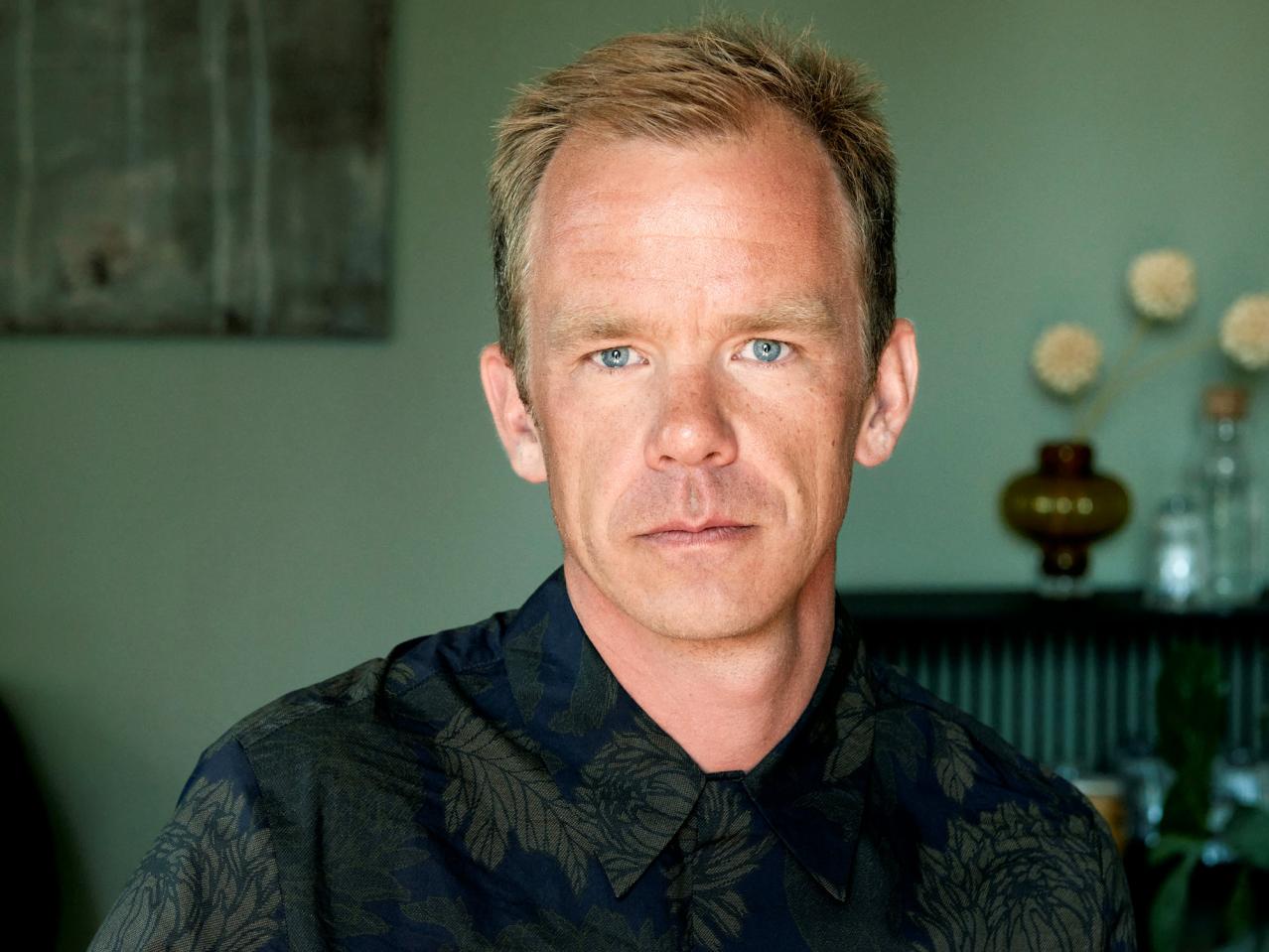
Alfred Sköld
Keynote
Existential Perspectives on Love
-
Read more
Alfred Sköld is Associate Professor in General Psychology at Aalborg University, Denmark. His research, that is theoretically anchored in existential phenomenology, psychoanalysis and critical theory, focuses broadly on existential phenomena such as grief, love, happiness and hope. Sköld’s line of research is preoccupied with questions of what it means to be human in the beginning of the twenty-first century, how our emotional landscapes are shaped by an intersection of existential universals, cultural mediators and personal characteristics.
Description
Even though the question of what love is remains enigmatic, experiences of love pervade our entire lives. This lecture will embark on a broad-scale investigation of what the experience of love can teach us about who we are and what it means to be human. I will argue that love crystalizes some of the most important features of our existential condition, and that its vast importance should be seen in this light.Research projects
Sköld’s ph.d.-dissertation, Relationality and Finitude – A Social Ontology of Grief (2021) was written as part of the interdisciplinary research project “The Culture of Grief”, that investigated the natural, cultural and personal dimensions of grief in light of the implementation of Prolonged Grief Disorder in ICD-11. Drawing empirically on interviews with bereaved life partners in different generations, Sköld developed a social ontology of grief, where grief is situated as a mediator between the relational and finite aspects of human life.His current research project, “Emotions of Climate Activism” investigates the role of emotions in light of the ecological crisis. The project is empirically anchored in an ethnographic and interview-based study of young climate activist in The Green Youth Movement (Den grønne ungdomsbevægelse), and examines specifically how the emotions of grief, hope and care play a role in this context.
Sköld is also the editor of several anthologies and has published extensively within the field of death awareness and critical happiness studies.
Selected publications
Sköld, A. (2021). Relationality and Finitude – A Social Ontology of Grief. Aalborg. Aalborg University Press.
Sköld, A. & Roald, T. (2021). An Existential Structure of Love. The Humanistic Psychologist, 49(3), 369-380. https://doi.org/10.1037/hum0000165
Sköld, A. (Ed.) (2023). Kærligehedens Kartotek [The Register of Love]. Aarhus: Klim.
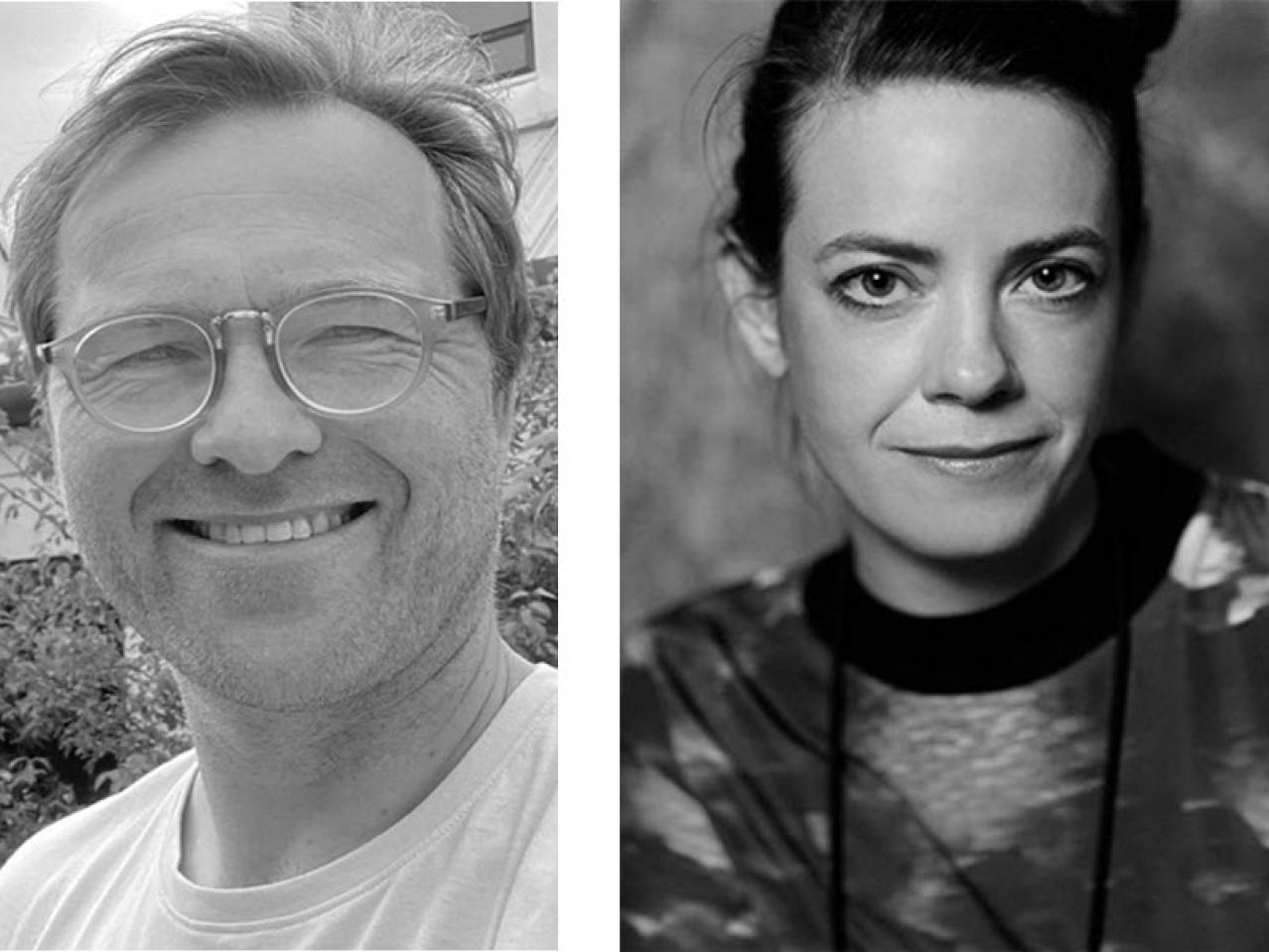
Esben Bala Skouboe
Marie Koldkjær Højlund
Keynote
Existential Spaces for Birth & Death
-
Read more
Dr. Esben Bala Skouboe and Dr. Marie Koldkjær Højlund has been collaborating in Northjutland Arts in Health Collective Studio Poesis for the past 10 years. In this collaboration they search to help hospitals bridge the know-do gap between the world of the arts and the world of healthcare practice. Together they have published more than 40 peer-reviewed and made joint artworks in the healthcare sector.
Esben’s research explores interactive art for healthcare design, computational design, and digital fabrication. With over 20 peer-reviewed publications and contributions to experimental art exhibitions, his work has been showcased internationally, including at the Venice Architectural Biennale and in prominent public spaces. His achievements have garnered numerous awards, including the Best Architectural Practice Award from the Pachness Foundation and over ten art grants.
Marie is an award-winning musician, composer, sound artist, and researcher, specializing in creating site-specific listening experiences. In her work, she has been involved with sensory concerts and sound design as part of a mental health-promoting treatment. Marie has written her Ph.D. titled: “Overhearing: An Attuning Approach to Noise in Danish Hospitals” and is employed as an associate professor at Aarhus University in the field of Audio Design. In 2023 Marie received the priestesses Carl Nielsens Price 2023
Description
In this keynote presentation, Esben Bala Skouboe and Marie Koldkjær Højlund delves into the profound interplay between architecture, sensory design, and human experiences at two of life’s most transformative moments—birth and death. Titled "Existential Spaces for Birth & Death," this thought-provoking presentation draws upon the artist’s extensive research and innovative practice at Studio Poesis, where they combines art, science, and technology to reimagine how we design spaces that support human dignity, connection, and emotional well-being.
Focusing on healthcare environments, Dr. Skouboe and Dr. Højlund will present groundbreaking projects such as sensory delivery rooms, which integrate rituals, sound, light, materiality, and spatial design to create environments that respond to the physiological and psychological needs of individuals during childbirth. Together they will explore how such spaces transcend functionality, becoming places of profound existential meaning that support the vulnerability, empowerment, and transformation inherent in the act of bringing life into the world.
Likewise, they will address the design of spaces for the end of life, offering reflections on how architecture can provide solace, comfort, and connection for individuals and their loved ones during the final moments of life. Drawing on principles of existential art and sensory design, they will illustrate how thoughtfully curated environments can foster a sense of peace and dignity, emphasizing the importance of integrating aesthetic and emotional dimensions into spaces often associated with grief and transition.
This keynote highlights the essential role of the artist shaping the ‘atmospahre’ as a the human exisistential experience, challenging traditional notions of healthcare design by emphasizing the interplay of beauty, functionality, and existential depth. By bridging the worlds of art and science, Dr. Skouboe and Dr. Højlund reveals how architectural spaces can support life’s most meaningful transitions, offering profound insights for artists, healthcare professionals, and researchers interested in the impact of design on human experience.
Join this compelling presentation to explore how innovative architectural practices can elevate our understanding of lived experiences and redefine the spaces where life begins and ends.
Selected publication
Crafting atmospheres for Healthcare Design The Journal of Somaesthetics Volume 8, Number 1 (2022)Current projects
- Sensorial Spaces in Intensive Care, Regionalhospital Hjørring
- Arts in Health Biennale 2025, Region Midt
- Development of Sensorial Delivery Rooms for hospital in Abu Dhabi
Pia Dreyer
Keynote
Phenomenological Hermeneutics and the Human Sciences Underscore the Significance of Narratives: Acknowledging that Human Lives Deserve to Be Told
-
Read more
Pia Dreyer is a Professor in Nursing and a Clinical Nurse Specialist at Aarhus University and Aarhus University Hospital. She is engaged in research, education, and teaching in the fields of intensive care nursing and home ventilator treatment. Pia has been involved in the establishment, development, and research of Home Mechanical Ventilation in Denmark for over 30 years. She currently leads The ICU Cognitive Rehabilitation Nursing Programme (ICU-CogHab).
Pia’s research interests center on qualitative methodologies, including phenomenology, hermeneutics, narratives, text, and interpretation, drawing inspiration from the French philosopher Paul Ricoeur. Her phenomenological and hermeneutical scholarship is deeply rooted in the life-wide practices of nursing and research. By exploring lived experiences and uncovering meaning, she seeks to achieve a profound understanding of patients’ and relatives’ illness trajectories and life conditions. Her insights aim to inform healthcare professionals, students, and educators alike.
Building on Ricoeur’s ideas about narratives in relation to human lives, Pia advocates for the view that within the framework of hermeneutics and the human sciences, narratives illuminate selfhood: "We are the stories we tell." She has demonstrated how narratives provide rich data about patients' lives, benefiting both research and clinical practice. Through phenomenological-hermeneutical studies in nursing, Pia has illustrated how narratives can be applied at all stages of the research process. By employing metaphors and narrative language, she presents research findings in a way that is both meaningful and insightful, offering readers new perspectives and deeper understanding.
Description
Pia will demonstrate how a phenomenological-hermeneutical approach, inspired by Paul Ricoeur’s philosophy on hermeneutics and the human sciences, provides valuable insights into studying patients’ everyday lives and their experiences of being critically ill.Selected publications
- Dreyer, P. (2019). Den kritiske fortolkning og diskussion med afsæt i Paul Ricoeurs filosofi (The Critical Interpretation and Discussion Based on Paul Ricoeur's Philosophy). In Fenomenologi i praktiken. Fenomenologisk forskning i ett skandinaviskt perspektiv. Edited by Dahlberg, H., Ellingsen, S., Martinsen, B., & Rosberg, S. Liber AB, Stockholm.
- Dreyer, P., Thorn, L., Lund, T.H., & Bro, M.L. (2024). Live music in the intensive care unit – a beautiful experience. International Journal of Qualitative Studies on Health and Well-being, 19(1), 2322755. DOI: 10.1080/17482631.2024.2322755.
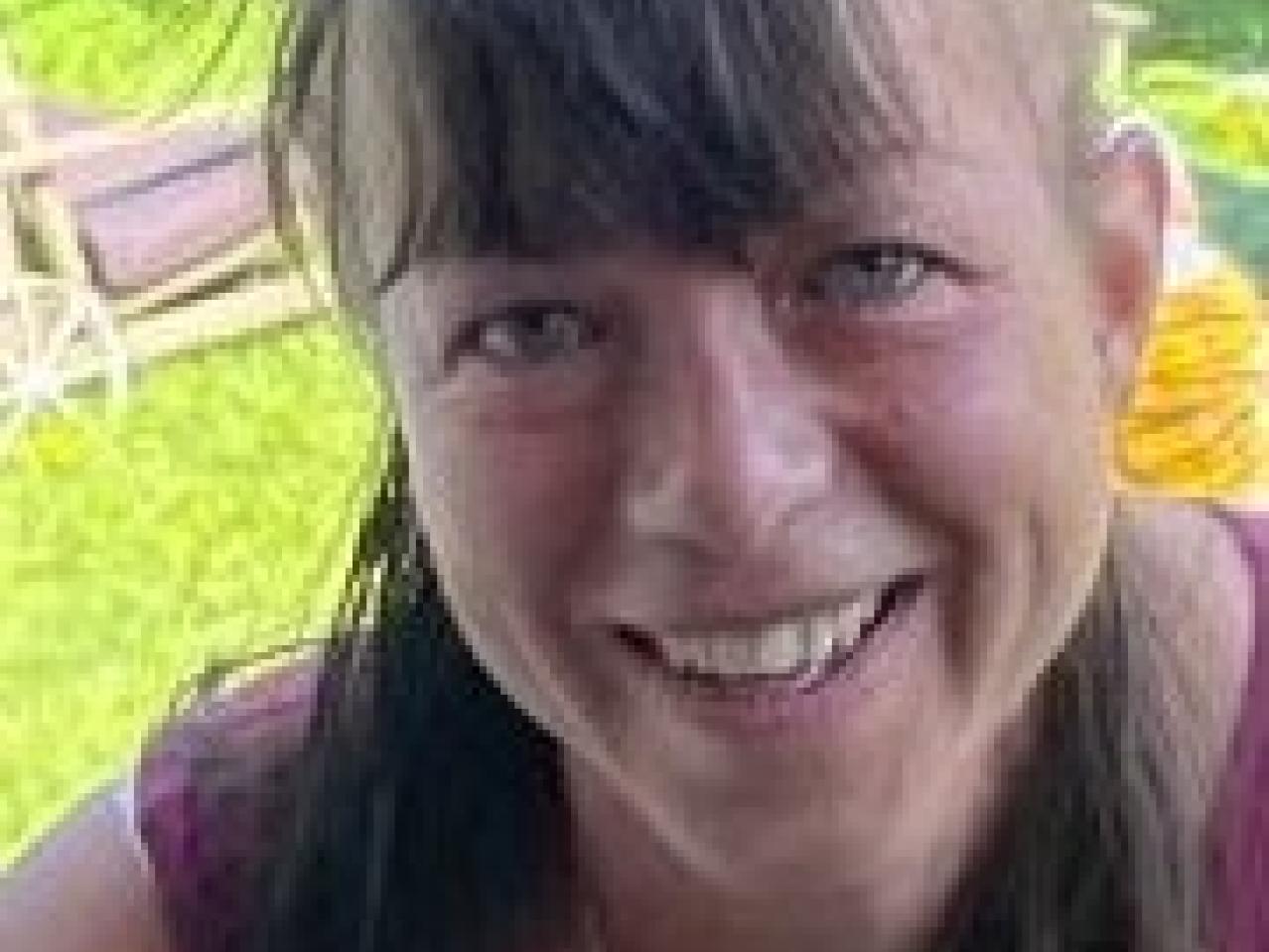
Helena Dahlberg,
Keynote
Understanding and moving in the flesh – a search for the junction between theory and praxis
-
Read more
Helena Dahlberg, Associate Professor in Caring Science, holds a Ph.D. in History of Ideas, a Master’s degree in Philosophy, and is a certified Feldenkrais pedagogue. She is renowned for her interdisciplinary approach that bridges philosophical theory, bodily practice, and qualitative research. Her work navigates the junctions between epistemology, phenomenology, somatic practices, and empirical methodology with a distinct focus on embodiment, perception, and learning within caring professions and educational settings.
Description
In her keynote presentation, Helena Dahlberg will explore the dynamic interplay between theory and practice through the lens of Maurice Merleau-Ponty’s phenomenology and Feldenkrais movement pedagogy. Titled “Understanding and Moving in the Flesh – A Search for the Junction Between Theory and Praxis”, this presentation delves into Merleau-Ponty’s concept of “flesh” as articulated in The Visible and the Invisible, highlighting its ontological significance as neither object nor subject, but rather the medium that weaves perception and experience into a meaningful whole.
By connecting this philosophical foundation to Feldenkrais movement practice, Dahlberg illustrates how bodily sensing and movement can illuminate the theoretical concept of the “in-between” — the liminal zone where perception, reflection, and action meet. She emphasizes the relationality of the body, particularly through the phenomenological observation of one hand touching the other, and how this tactile experience reveals a fluid boundary between perceiver and perceived. In Feldenkrais practice, this boundary becomes a focal point of curiosity, offering insights into the lived body as both subject and object.
Dahlberg will extend this inquiry into the realm of empirical research by addressing the challenges of bracketing and bridling in phenomenological methodology. She will question how researchers can remain open to the unforeseen while remaining critically aware of their own perceptions during data collection and analysis. Drawing on her work in developing qualitative methods rooted in phenomenological and hermeneutic traditions (Dahlberg, Dahlberg & Nyström, 2008; Dahlberg & Dahlberg, 2019, 2020, 2022), she invites researchers to embrace a reflective and embodied mode of inquiry that honors the complexity of human experience.
This presentation will particularly resonate with researchers, educators, and practitioners interested in the interweaving of somatic awareness, philosophical depth, and methodological rigor. By foregrounding the corporeal and existential dimensions of learning and research, Dahlberg redefines how we understand knowledge — not just as abstract theory, but as something lived, felt, and enacted through the body.
Join this presentation to experience a profound exploration of the boundaries between knowing and doing, reflection and movement, theory and practice — a presentation that reimagines how we engage with knowledge through the very flesh that makes such engagement possible.
The organizing committee
Vibeke Østergaard Steenfeldt, Chairman
Associate Lecturer, Center for Nursing, University College Absalon & Associate Professor, Faculty of People and Technology, Roskilde University, Denmark
Bente Martinsen
Associate Professor, Head of Studies, Faculty of People and Technology, Roskilde University, Denmark
Camilla Holm Jacobsen
Management and Research Consultant, Center for Nursing, University College Absalon, Denmark
Malene Beck
Head of Research, Children and Adolescent Department, Research Unit #WeDoCare
Associate Professor, Zealand University Hospital, Region Zealand & Faculty of Health, Institute of Regional Health, University of Southern Denmark & Faculty of People and Technology, Roskilde University, Denmark.
Sine Maria Herholdt-Lomholdt
Professor, Faculty of Nursing and Health Sciences, Nord University, Norway
Stine Gundtoft Roikjær
Assistant Lecturer, Center for Nursing, University College Absalon, Denmark & Postdoc, The Research and Implementation Unit PROgrez, Næstved-Slagelse-Ringsted Hospitals, Region Zealand, Denmark.
Conference venue
The conference is hosted by University College Absalon. With thirteen different professional bachelor degree programmes, University College Absalon is the cornerstone for education in our region of Zealand.
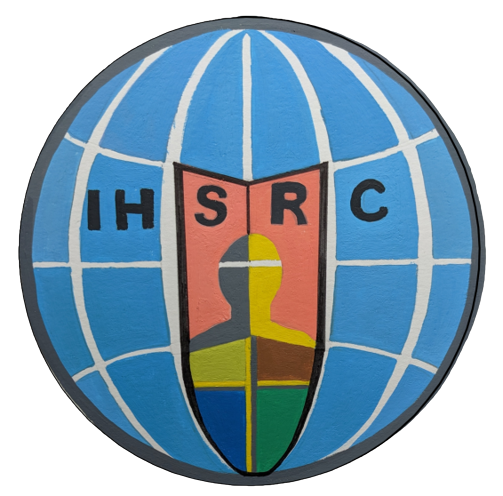
Molloy University's Organizing Committee and The International Human Science Research Conference would like to acknowledge Dr. Hwa Young Caruso, Professor of Art at Molloy University, and her student, Ms. Willow Chamblin, Visual Arts Education Major at Molloy University, for the creation of the 2024 IHSRC conference logo.